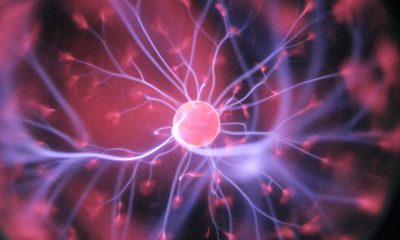Business
10,000 hours to become expert in anything: Truth or hoax?
Is there a way to learn or master a skill without necessarily spending 10,000 hours of studying?

The myth behind the 10,000 hours required time to become expert in anything may or may not hold water. In order to learn something, it naturally takes time, effort, discipline, and dedication. While spending 10,000 hours to learn or master a craft is a commendable effort, not all of us have the luxury of time and patience to do it. Here are some techniques to learn something faster.
Geniuses like Elon Musk and Albert Einstein were able to soak knowledge like a sponge. Not all of us are born geniuses and being a slow learner is not exactly a bad thing. Musk and Einstein learned quickly because they view studying not as a task but a relatable human activity. Einstein believed that learning becomes easy when one is having fun because when you take away the burden and pressure of learning a craft and just focus on the fun and positive elements, it becomes a joyful activity.
Musk, on the other hand, believes in the necessity of learning the basics. He also advises that learners need to have confidence in themselves to speed up the process of soaking information. “It is important to view knowledge as sort of a semantic tree — make sure you understand the fundamental principles, i.e., the trunk and big branches, before you get into the leaves/details or there is nothing for them to hang on to,” he added.
Musk is an expert in learning, if not one of the best in the world. He is the man behind so many companies such as SolarCity, Tesla, SpaceX, PayPal, The Boring Company, The Musk Foundation, Neuralink, Stripe, and DeepMind, among others.

Experts say one needs 10,00 hours to become a master in anything. (Source)
For those who do not have 10,000 hours to spend on learning, Inc. suggests four techniques that are a lot practical and handy:
One is to practice daily.
As the saying goes “practice makes perfect”, practicing daily makes it easier for the brain to acquire knowledge due to repetitive studying patterns.
Second is to get mentors.
There will be mentors who will say they know how to do it but choose the credible ones who actually went down that road and did it.
Third is to understand that everything takes time.
Excellence is not achieved overnight. It is achieved by years and years of learning, failing and never-ending quest to get better.
Lastly, be realistic and take everything one step at a time.
Do not be frustrated with small achievements, instead, celebrate small victories along the way. Remember, progress is still progress, no matter how small they come.
Per MakeUseOf, experts have debunked the truth behind the 10,000 Hours rule. Professor of Psychology at Florida State University Anders Ericsson says the rule fails to mention the quality of practicing within the 10,000 Hours time frame. Also, there will be things that people unlearn and re-learn in the process.
Tim Ferris, in his book The Four-Hour Chef, tackled the importance of quality over quantity when it comes to acquiring a new skill or knowledge. People need to understand how their brain works and take advantage of it as people have different ways how their mind works.
Having a support group who can point out constructive feedbacks also help. Also, he believes that one has truly mastered a craft if he or she can explain and make any 6-year-old understand the concept.

-

 Business2 weeks ago
Business2 weeks agoLegal Process for Dividing Real Estate Inheritance
-

 Fintech12 hours ago
Fintech12 hours agoJPMorgan’s Data Fees Shake Fintech: PayPal Takes a Hit
-

 Fintech1 week ago
Fintech1 week agoPUMP ICO Raises Eyebrows: Cash Grab or Meme Coin Meltdown?
-

 Africa3 days ago
Africa3 days agoSurging Expenditures Widen Morocco’s Budget Deficit Despite Revenue Growth





















You must be logged in to post a comment Login